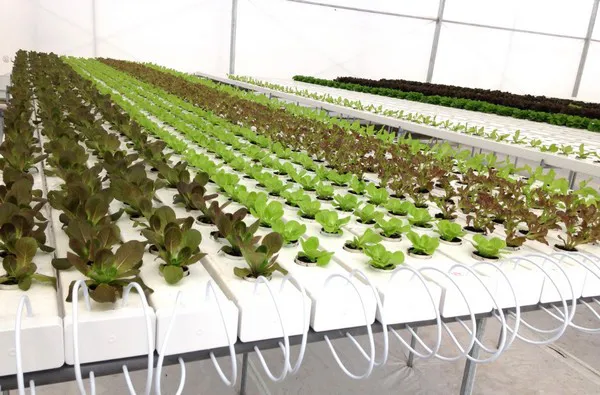A large-scale microbiome project across 12 commercial hydroponic farms in Canada has been ongoing since September 2020. The project, Healthy Hydroponics, is led by Metagenom Bio Life Science, a biotechnology and genetic sequencing company based in Waterloo, Ontario, and they have been working with the Ontario Ministry of Agriculture, Food, and Rural Affairs to connect growers to this study.
Healthy Hydroponics aims to use DNA sequencing to first identify the baseline microbial community (microbiome), plant pathogens, and foodborne microorganisms in hydroponic systems, particularly those in the nutrient solution, leachate, and roots. From there, they are developing a curated database of pathogens and DNA markers to detect targeted pathogens in the leachate and on the roots in hydroponic systems.

"To our knowledge, this is the first hydroponic microbiome project across multiple hydroponic farms of different crops," says Dr. Trevor Charles, Chief Science Officer of Metagenom Bio and professor of Biology at the University of Waterloo.
Samples from farms
Dr. Charles is spearheading Healthy Hydroponics with an experienced team of members in and out of the lab to process and analyze the samples. They developed a technique for the growers to sample the nutrient solution, leachate, and roots, then send the team back samples to process.
"We've been partnering with growers to collect samples from their farms. We would have loved to visit local growers to see their farms and build rapport, but we decided to have growers send us samples due to the pandemic. We are really grateful for their participation and help, especially during such difficult times," he said.
Rebecca Co, who manages and coordinates Healthy Hydroponics said, "We work with each grower to develop a customized sampling plan that works with the growth cycle of their crop and their hydroponic system."
Extracting DNA
As of July 2021, the team has extracted DNA and sequenced 331 samples from farms growing tomatoes, cucumbers, lettuce, kale, and strawberries. They also collect metadata along with the samples to relate trends in the abundance and presence of different microorganisms, including pathogens, in relation to environmental conditions and crops.
"We use a proprietary DNA isolation kit and next-generation DNA sequencing technology," said Dr. Jiujun Cheng, the lab scientist who processes the samples.
The sequencing data is then processed in two phases. "First, using standard microbiome tools and reference databases to give us general insight into the hydroponic microbiome. Subsequently, using our curated human and plant pathogen databases, statistics, and machine learning, we gain a better understanding of the pathogen dynamics in these samples," says Dr. Michael Lynch, bioinformatician who processes and analyzes the data behind Healthy Hydroponics.
"One of the challenges is determining which combinations of species are particularly problematic, but the large amount of sequence data we’ve generated and environmental data we’ve received from growers has helped us address this challenge."
Revealing pathogens
Analysis of the microbiome data revealed the presence of plant pathogens and other microorganisms in hydroponic systems and those particular to certain crops, growers, and starting conditions. The Healthy Hydroponics team has also received ample feedback from the growers on the reports. As a result, they are implementing changes in a new iteration of the report that would make it easier and quicker for growers to understand and interpret.
"New reports will be formatted with the feedback of multiple growers so they will be more helpful for subsequent growers who use this service. The end goal of the project is to provide growers with the information that they need to keep their operations running efficiently and free of disease-causing organisms that could harm production and food safety, while promoting the development of a healthy microbiome in the system," said Dr. Charles.
Healthy Hydroponics also has a website where educational resources for growers are posted. Suggestions for blog post ideas are always welcomed. "We encourage growers or anybody interested in controlled environment agriculture to check out our blog. We provide project updates and educational content such as the Microbiology Glossary, Pathogen Profiles, and directories of Canadian hydroponic farms."
For more information:
Healthy Hydroponics
www.healthyhydroponics.ca
